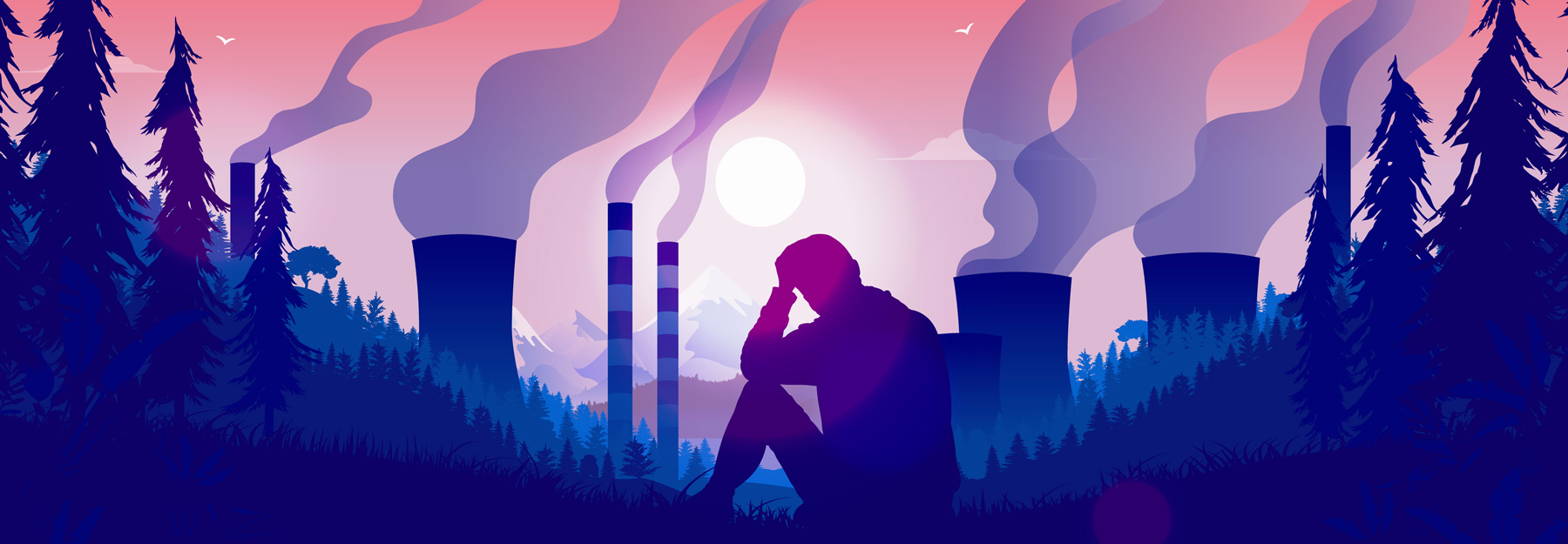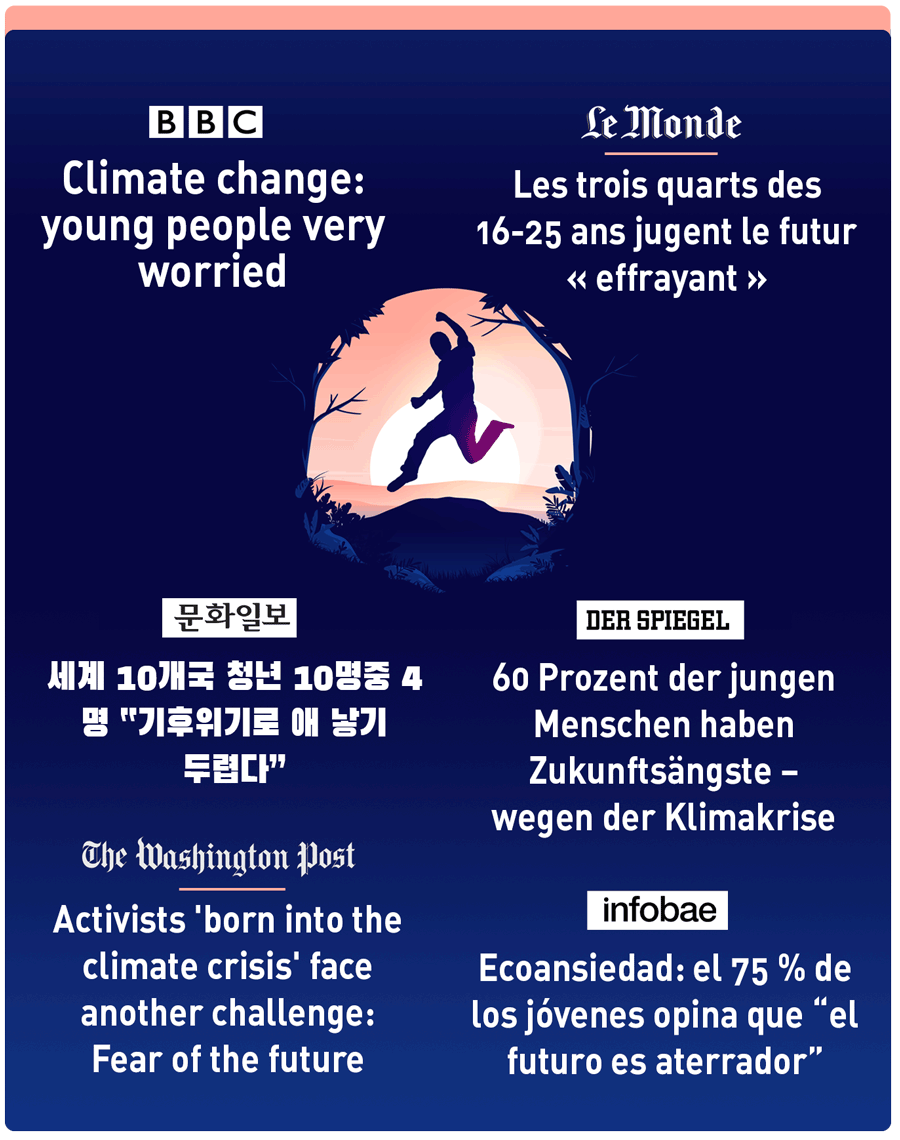
Briefing:
What is Climate Anxiety?
How it relates to government inaction and what we can all do about it.
Share your experience
How it relates to government inaction and what we can all do about it.
Share your experienceAvaaz members just funded the biggest-ever survey on climate anxiety in children and young people -- surveying 10,000 people in 10 countries around the world. In every country, it shows that anxiety about the planetary crisis is very high, and it's not just because we're witnessing devastating climate disasters, it's also linked to governments consistently failing to take decisive, meaningful action to stop the crisis.
We can still stop runaway climate change. We know what's needed, and what governments must do. But it will require bold political will and determination -- and that's been woefully missing. Yet things are moving, there is new momentum, and there's still tons of space for radical, grounded hope.
❯❯ This briefing is to help us all understand what climate anxiety is, how we can live with it, and how those feelings can inspire radical hope as we fight to protect our planet.
Click below to read the briefing, or share your experience of climate anxiety by clicking the pink button.
Here's what the study found:
Nearly half of global youth surveyed (45%) say climate anxiety is affecting their daily lives: how they play, eat, study, and sleep.
More than seven in ten (75%) believe 'the future is frightening' -- jumping to 81% of youth surveyed in Portugal and 92% in the Philippines.
58% said governments were “betraying me and/or future generations,” while 64% said their governments are not doing enough to avoid a climate catastrophe.
Almost four in ten youngsters (39%) said they are now hesitant about having children.
These results are scary, but psychologists say it's not just affecting children. Climate anxiety is being felt by people of all ages, everywhere.
This study's findings could also play a key role in youth-led climate litigation, such as the landmark climate lawsuit against 33 governments, which Avaaz members are helping to fund. That's not all: in the run-up to this year's UN climate summit, we're going all out to make sure this study lands on every decision-maker's desk, influencing critical negotiations and government policy. The report is already making massive media waves, with huge coverage in some of the most influential news outlets, and the UN Secretary General even mentioned the findings in his big speech to world leaders -- amazing!

Climate anxiety is the worry, frustration, grief, and even anger linked to the reality of the climate crisis and our governments' ongoing failure to respond with the urgency it requires.
People are feeling betrayed by leaders and scared of the future. These are uncomfortable and difficult feelings -- but they're a perfectly normal, healthy response to the destruction of the natural world coupled with political inaction.
It's not a matter of 'fixing' or 'solving' our anxiety, but learning to live with it. For each of us, it's about acknowledging those feelings, and respecting them, so that we can engage in the crisis and hold our leaders accountable, without falling into despair or denial.
Our feelings of anxiety often come from a deep, genuine love for nature and the planet. How could we not be feeling anxious? Our feelings aren't the problem; the reality of the crisis, combined with political failure are.
If climate anxiety is a healthy, natural response, then how do we live with it? Here are some tips and ideas from the Climate Psychology Alliance that may help you and your loved ones:
Remember that you are not alone. There are lots of other people who may be as anxious as you are -- it could just be that they aren't talking about it.
Create space to talk about climate change, but specifically for the feelings it brings up for yourself and others. Listen to how young people feel and take their feelings seriously. Explain to them that their feelings make sense and are a sign that they are a caring person. It's normal to feel sad and frustrated with things as they are right now.
Know that it's not all on you. There's only so much one person can do, and while individual action DOES have an impact, this is a collective responsibility. Support young people to take action, however small the impact may feel to you. Avaaz is proof that when enough of us get together we can make a big difference!
Do your best to take care of yourself physically and emotionally. It sounds obvious, but taking care of the basics can help to boost our resilience and keep ourselves grounded.
Spending time in nature can help. Connect with nature and allow yourself to enjoy its beauty. Our love for nature can inspire our fight to protect the planet.
Feeling some degree of climate anxiety is a natural response, and talking about it is helpful. So we're creating a space where we can all share our own experiences of how we're living with climate anxiety, maybe even as it inspires us to action. Scroll to read what others are saying, and share your own thoughts and ideas.